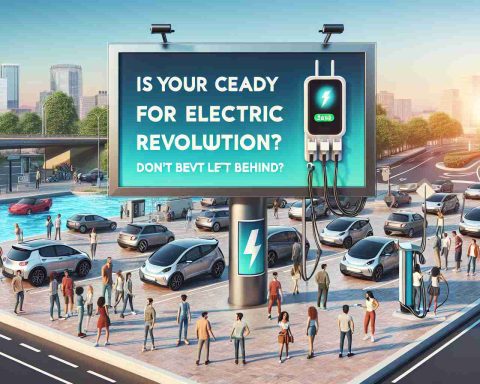Concerns about electric vehicle safety are on the rise once again. A recent event involving a Bajaj Chetak electric scooter in Chhatrapati Sambhajinagar has gone viral, sparking discussions about fire hazards associated with EVs. A user shared a clip on social media showing the scooter emitting smoke while idling at a bustling traffic signal on Jalna Road.
In light of the incident, Bajaj Auto has initiated an investigation into the cause of the smoke. Reports reveal that two local farmers were in the area purchasing water pipes when they noticed their scooter releasing smoke. Swift action was taken as a fire brigade team from the Seven Hills fire station arrived to address the situation. The firefighters intervened promptly, spraying water on the scooter until the smoke dissipated.
While the precise reason for the scooter’s smoking remains unclear, a spokesperson from Bajaj Auto acknowledged the situation, confirming that a thermal incident was being looked into. This incident has reignited discussions about the fire risks tied to electric vehicles.
Traditionally, internal combustion engine (ICE) vehicles have been known for their fire vulnerability due to flammable fuels. However, it’s vital to recognize that electric vehicles, powered by high-voltage batteries containing combustible materials, are not exempt from such dangers. Over the past few years, numerous electric vehicles, both cars and bikes, have faced similar incidents, leading manufacturers to seek safer battery technologies.
Are Electric Vehicles Safe? Investigating the Fire Hazard Debate
Understanding the Concerns Around Electric Vehicle Safety
The recent incident involving a Bajaj Chetak electric scooter in Chhatrapati Sambhajinagar has reignited the conversation about the safety of electric vehicles (EVs). As more consumers pivot towards EVs for their environmental benefits, understanding the safety implications is crucial. This article explores the potential risks, recent trends, and innovations in EV safety.
Common Concerns About Electric Vehicles
1. Fire Risks: As evidenced by the Bajaj Chetak incident, electric vehicles can be susceptible to thermal incidents due to their high-voltage lithium-ion batteries. While these batteries offer substantial energy storage, they also pose risks if damaged or poorly designed.
2. Battery Life and Management: The lifespan and efficiency of EV batteries directly impact their safety. Many manufacturers are innovating in battery management systems (BMS) to monitor temperature and performance, which can prevent overheating and potential fires.
3. Charging Infrastructure: The safety of home and public charging stations is a growing concern. The use of substandard charging equipment can lead to electrical failures that might ignite fires.
Innovations in Electric Vehicle Safety
To counteract these concerns, manufacturers are heavily investing in research and development to enhance vehicle safety features. Innovations include:
– Advanced Battery Technologies: Solid-state batteries are emerging as a safer alternative to traditional lithium-ion batteries, offering higher energy density and reduced risks of combustion.
– Thermal Management Systems: Modern EVs are increasingly equipped with sophisticated cooling systems to regulate battery temperatures, minimizing fire risks.
– Robust Testing Standards: Regulatory bodies are implementing stricter testing protocols for EVs to ensure their safety before they hit the market.
Pros and Cons of Electric Vehicles
# Pros:
– Environmental Benefits: Electric vehicles produce zero tailpipe emissions, contributing to reduced air pollution.
– Lower Operating Costs: EVs typically have lower costs per mile compared to gasoline vehicles, thanks to fewer moving parts and less maintenance.
# Cons:
– Fire Hazards: As discussed, risks associated with battery fires and thermal runaway incidents remain.
– Range Anxiety: Limited battery range and charging availability can be a concern for potential EV buyers.
Recent Trends and Insights
As the electric vehicle market grows, consumer awareness regarding safety issues is on the rise. A survey by the International Council on Clean Transportation (ICCT) indicates that consumers prioritize safety features alongside sustainability when selecting an EV.
Comparisons with Internal Combustion Engine Vehicles
While internal combustion engine (ICE) vehicles have long been associated with fire hazards due to flammable fuels, it’s essential to recognize that electric vehicles are not altogether risk-free. The transition to EVs introduces new safety considerations, prompting ongoing research and development in battery technology and vehicle safety.
Conclusion: Is the Future of Electric Vehicles Safe?
Despite the associated risks, the electric vehicle industry is making strides to enhance safety protocols and battery technologies. As innovations continue to develop and safety standards improve, the debate about electric vehicle safety will remain at the forefront. Consumers seeking to invest in EVs should stay informed about advancements in technology and regulatory changes pertaining to vehicle safety.
For more information on the latest in electric vehicles, visit Electrek.




